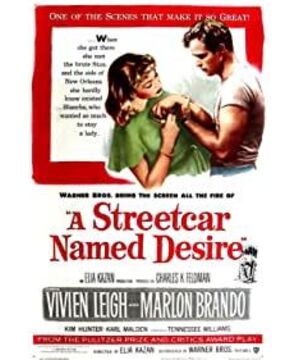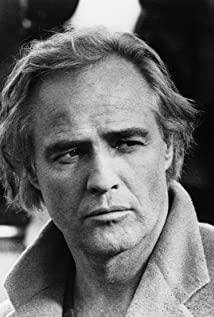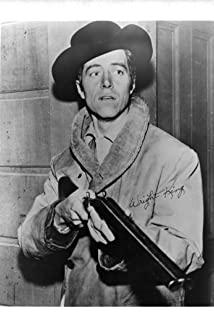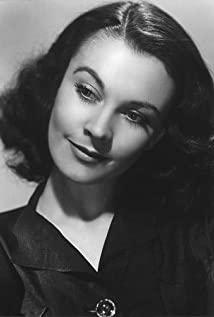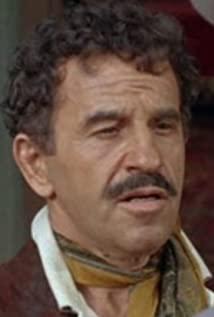In the 1940s, the anti-homosexuality wave in the United States was on the rise. At the same time, the modern industrial civilization in the north and the traditional planting civilization in the south formed a sharp conflict. Under the impact of modern industrial civilization, many young people felt lost in life. The new feminist movement is also gradually emerging in the United States. Tennessee Williams himself was gay, and he was motivated to write the show for a variety of reasons. Blanche's heroine Blanche is the central character in "A Streetcar Named Desire". The whole story begins with "she came to the north to seek refuge with her sister Stella", which leads to Blanche's inner craving for love and desire for primitive sensuality. The irresistibility of her, and her incompatibility with the real environment, she was finally sent to the lunatic asylum. Blanche turned out to be an innocent, kind girl. However, Blanche is not "good" good. Carrying an absurd past, she teases Stanley, seduces young teenagers, and uses deception to win Mitz's love. Blanche's uncontrollable "lust" and loss of love lead her to a tragic end. This desire initially manifested in her morbid love for her handsome young husband. Stella recalled: "She not only liked him, but worshipped every inch of the land he walked, she worshipped him like a god." But at the same time Blanche has also been troubled by her husband Ellen's homosexual behavior, according to According to the traditional ethics and morality at that time, homosexuality is contrary to ethics and morality. Ellen's homosexual behavior conflicts with Blanche's ideal marriage, and Blanche's cruelty and disgust directly lead to the suicide of her self-blaming husband, which is a fatal blow to Blanche. Without Ellen, Blanche seems to have lost the focus of her life. She feels abnormally empty and constantly seeks spiritual and physical solace. Stanley Williams described Stanley this way: Wearing blue work clothes, a bowling jersey over his shoulders, and holding an embroidered paper bag wrapped in raw meat, he threw it at Stella and defiantly Roaring, he is the representative of the people living in this area, a barbarian who has no connection with civilized life, his mouth is full of erroneous sentences and Dan words often used by uneducated people, and his clothes are gorgeous and tacky. Compared with Blanche, who was wearing a clean white dress, it was obviously out of place. Blanche had said he was a bit like an ape... Thousands of years had passed, but there he was, a survivor of the Paleolithic. In addition, in the stage direction of the script, Stanley is also depicted as a dangerous person whose greatest pleasure is a woman. Stanley was of Polish descent, a former soldier, and a rough and primal man. He was violent, spoke and behaved rudely like a wild animal. He has a beast-like power in him. As a husband, Stanley failed to give his wife the protection and gentleness she deserved Instead, he punched and kicked his wife after drinking too much. At first, his rough desires were mainly reflected in his need and possessiveness for his wife. He was used to getting enough physical and psychological desires in a rough life. When Blanche arrives at home, Stanley struggles with desire. Culture Clash Blanche is full of fantasy, the complete opposite of Stanley's actual reality. The two represent different regions, cultures and conflict with each other. Stanley is the incarnation of northern industrial civilization. His rudeness, presumptuousness, pursuit of sensuality and materialism represent the existence of the real world; while Blanche is a symbol of the southern plantation economy, her elegance, sensitivity, and conservativeness. , stubbornness makes her an "alternative" in the real society. Bradley escaped because she couldn't resolve this confrontation and conflict. She escaped from the perished Sweet Dream Manor, carrying the brand of her class and having a fierce collision with reality, and was finally driven mad by reality. Such a woman must end in destruction. Blanche represents a generation of women who have grown up with the cultural values of the South, and once their ideas have been forged in one culture, they cannot be compromised in another. They are also highly dependent women who put all their hope in the people they love desperately. The disappointment brought by this kind of desperate investment is downright disappointing, and the Puritan tradition they accepted. Without teaching them to face reality, face up to their loss, and face the reality of the weak, she is always frightened and unable to cope. She just shrinks into her own fantasy world and seeks survival in an extremely morbid way, but the result can only be self-destruction. Blanche's tragedy reflects the embarrassing situation of Western women in the modern material society. Because of Blanche's tragedy throughout, many people shed tears for the female elegy "A Streetcar Named Desire." But what Williams is concerned with in this play is not only southern women, but also the survival of southern civilization. In this play, the modern society in the north, which is characterized by advanced industrial development, is exposing itself to the eyes of the public while expelling the cultural "other", focusing people's attention on "doubt about the meta-narrative, Doubts of the common guiding principles and myths that once govern, define and explain all the different forms of discursive activity in the world". "A Streetcar Named Desire" is a modern metaphor for a capitalist industrial civilization to realize self-disintegration while dissolving "the other". Gay "Street Car" As Felicia Londel said, "Street Car" "for everyone What impresses the most is, first, the mystery about the writer who created this great work, and second, the mystery of the work itself. The secrets and rich connotations in the works no matter how many descriptions In addition to the piano sound, the same polka dance appears seven times in the play. This piece of music is by no means random, but rather a deliberate arrangement by Williams, as it always occurs when Blanche is reminiscing about the past or is in a very low mood. The music is not heard by the other characters, but only in Blanche's hallucinations. Not only that, Blanche was always very restless when the dance music echoed in her ears, and she was not able to calm down until the last gunshot and the music stopped in the summer. Upon further investigation, this dance music turned out to be the music played at the dance before Allen committed suicide. At that time, an angry Blanche rushed to the dance floor and loudly exposed her husband. While the polka was playing, Allen rushed out and shot himself. The purpose of Williams' arrangement, though little noticed, is very clear. Through music, he renders to the audience the impact of Ellen's death on Blanche again and again: Ellen's suicide is fixed in Blanche's impression, and replays in her mind from time to time like a movie scene, time and time again Tortured her conscience, making her suffer from self-blame and remorse. It was this painful self-blame that transformed Blanche from a pure, decent rich lady to a cornered slut. Under the condemnation of her conscience, she began to atone for what seemed to be carnal pleasures, but was actually self-destructive - Blanche, who was once pure and decent, was naturally very aware of the fate of the debauchery. Driven by self-blame, she ruined her own body and reputation, hoping to gain forgiveness from her husband who she once considered "degenerate", and to gain temporary peace of mind. The root cause of Blanche's fall is that she has a strong sense of self-blame for causing her gay ex-husband to commit suicide. This kind of self-blame makes her punish herself with the despised indulgence of the world; and the reason for Ellen's death is Homosexuality has long been rejected and suppressed in American society. Just as Mr. Lu Xun accused society of cannibalism and traditional cannibalism in "Diary of a Madman", Williams revealed in "Street Car" the social tragedy caused by social prejudice's incomprehension and intolerance of homosexuality. Williams used a very subtle and twisted approach to express the strictly forbidden subject of homosexuality at the time. Using the same jigsaw puzzle technique, he divided Blanche's past into fragments, and through the retrospective of the stage characters, he completely told the process of Blanche's degeneration and revealed its profound reasons. Not only that, but Williams endows a fallen female figure with gay substance. In addition to the piano sound, the same polka dance appears seven times in the play. This piece of music is by no means random, but rather a deliberate arrangement by Williams, as it always occurs when Blanche is reminiscing about the past or is in a very low mood. The music is not heard by the other characters, but only in Blanche's hallucinations. Not only that, Blanche was always very restless when the dance music echoed in her ears, and she was not able to calm down until the last gunshot and the music stopped in the summer. Upon further investigation, this dance music turned out to be the music played at the dance before Allen committed suicide. At that time, an angry Blanche rushed to the dance floor and loudly exposed her husband. While the polka was playing, Allen rushed out and shot himself. The purpose of Williams' arrangement, though little noticed, is very clear. Through music, he renders to the audience the impact of Ellen's death on Blanche again and again: Ellen's suicide is fixed in Blanche's impression, and replays in her mind from time to time like a movie scene, time and time again Tortured her conscience, making her suffer from self-blame and remorse. It was this painful self-blame that transformed Blanche from a pure, decent rich lady to a cornered slut. Under the condemnation of her conscience, she began to atone for what seemed to be carnal pleasures, but was actually self-destructive - Blanche, who was once pure and decent, was naturally very aware of the fate of the debauchery. Driven by self-blame, she ruined her own body and reputation, hoping to gain forgiveness from her husband who she once considered "degenerate", and to gain temporary peace of mind. The root cause of Blanche's fall is that she has a strong sense of self-blame for causing her gay ex-husband to commit suicide. This kind of self-blame makes her punish herself with the despised indulgence of the world; and the reason for Ellen's death is Homosexuality has long been rejected and suppressed in American society. Just as Mr. Lu Xun accused society of cannibalism and traditional cannibalism in "Diary of a Madman", Williams revealed in "Street Car" the social tragedy caused by social prejudice's incomprehension and intolerance of homosexuality. Williams used a very subtle and twisted approach to express the strictly forbidden subject of homosexuality at the time. Using the same jigsaw puzzle technique, he divided Blanche's past into fragments, and through the retrospective of the stage characters, he completely told the process of Blanche's degeneration and revealed its profound reasons. Not only that, but Williams endows a fallen female figure with gay substance. , but only in Blanche's hallucinations. Not only that, Blanche was always very restless when the dance music echoed in her ears, and she was not able to calm down until the last gunshot and the music stopped in the summer. Upon further investigation, this dance music turned out to be the music played at the dance before Allen committed suicide. At that time, an angry Blanche rushed to the dance floor and loudly exposed her husband. While the polka was playing, Allen rushed out and shot himself. The purpose of Williams' arrangement, though little noticed, is very clear. Through music, he renders to the audience the impact of Ellen's death on Blanche again and again: Ellen's suicide is fixed in Blanche's impression, and replays in her mind from time to time like a movie scene, time and time again Tortured her conscience, making her suffer from self-blame and remorse. It was this painful self-blame that transformed Blanche from a pure, decent rich lady to a cornered slut. Under the condemnation of her conscience, she began to atone for what seemed to be carnal pleasures, but was actually self-destructive - Blanche, who was once pure and decent, was naturally very aware of the fate of the debauchery. Driven by self-blame, she ruined her own body and reputation, hoping to gain forgiveness from her husband who she once considered "degenerate", and to gain temporary peace of mind. The root cause of Blanche's fall is that she has a strong sense of self-blame for causing her gay ex-husband to commit suicide. This kind of self-blame makes her punish herself with the despised indulgence of the world; and the reason for Ellen's death is Homosexuality has long been rejected and suppressed in American society. Just as Mr. Lu Xun accused society of cannibalism and traditional cannibalism in "Diary of a Madman", Williams revealed in "Street Car" the social tragedy caused by social prejudice's incomprehension and intolerance of homosexuality. Williams used a very subtle and twisted approach to express the strictly forbidden subject of homosexuality at the time. Using the same jigsaw puzzle technique, he divided Blanche's past into fragments, and through the retrospective of the stage characters, he completely told the process of Blanche's degeneration and revealed its profound reasons. Not only that, but Williams endows a fallen female figure with gay substance. , but only in Blanche's hallucinations. Not only that, Blanche was always very restless when the dance music echoed in her ears, and she was not able to calm down until the last gunshot and the music stopped in the summer. Upon further investigation, this dance music turned out to be the music played at the dance before Allen committed suicide. At that time, an angry Blanche rushed to the dance floor and loudly exposed her husband. While the polka was playing, Allen rushed out and shot himself. The purpose of Williams' arrangement, though little noticed, is very clear. Through music, he renders to the audience the impact of Ellen's death on Blanche again and again: Ellen's suicide is fixed in Blanche's impression, and replays in her mind from time to time like a movie scene, time and time again Tortured her conscience, making her suffer from self-blame and remorse. It was this painful self-blame that transformed Blanche from a pure, decent rich lady to a cornered slut. Under the condemnation of her conscience, she began to atone for what seemed to be carnal pleasures, but was actually self-destructive - Blanche, who was once pure and decent, was naturally very aware of the fate of the debauchery. Driven by self-blame, she ruined her own body and reputation, hoping to gain forgiveness from her husband who she once considered "degenerate", and to gain temporary peace of mind. The root cause of Blanche's fall is that she has a strong sense of self-blame for causing her gay ex-husband to commit suicide. This kind of self-blame makes her punish herself with the despised indulgence of the world; and the reason for Ellen's death is Homosexuality has long been rejected and suppressed in American society. Just as Mr. Lu Xun accused society of cannibalism and traditional cannibalism in "Diary of a Madman", Williams revealed in "Street Car" the social tragedy caused by social prejudice's incomprehension and intolerance of homosexuality. Williams used a very subtle and twisted approach to express the strictly forbidden subject of homosexuality at the time. Using the same jigsaw puzzle technique, he divided Blanche's past into fragments, and through the retrospective of the stage characters, he completely told the process of Blanche's degeneration and revealed its profound reasons. Not only that, but Williams endows a fallen female figure with gay substance. . Through music, he renders to the audience the impact of Ellen's death on Blanche again and again: Ellen's suicide is fixed in Blanche's impression, and replays in her mind from time to time like a movie scene, time and time again Tortured her conscience, making her suffer from self-blame and remorse. It was this painful self-blame that transformed Blanche from a pure, decent rich lady to a cornered slut. Under the condemnation of her conscience, she began to atone for what seemed to be carnal pleasures, but was actually self-destructive - Blanche, who was once pure and decent, was naturally very aware of the fate of the debauchery. Driven by self-blame, she ruined her own body and reputation, hoping to gain forgiveness from her husband who she once considered "degenerate", and to gain temporary peace of mind. The root cause of Blanche's fall is that she has a strong sense of self-blame for causing her gay ex-husband to commit suicide. This kind of self-blame makes her punish herself with the despised indulgence of the world; and the reason for Ellen's death is Homosexuality has long been rejected and suppressed in American society. Just as Mr. Lu Xun accused society of cannibalism and traditional cannibalism in "Diary of a Madman", Williams revealed in "Street Car" the social tragedy caused by social prejudice's incomprehension and intolerance of homosexuality. Williams used a very subtle and twisted approach to express the strictly forbidden subject of homosexuality at the time. Using the same jigsaw puzzle technique, he divided Blanche's past into fragments, and through the retrospective of the stage characters, he completely told the process of Blanche's degeneration and revealed its profound reasons. Not only that, but Williams endows a fallen female figure with gay substance. . Through music, he renders to the audience the impact of Ellen's death on Blanche again and again: Ellen's suicide is fixed in Blanche's impression, and replays in her mind from time to time like a movie scene, time and time again Tortured her conscience, making her suffer from self-blame and remorse. It was this painful self-blame that transformed Blanche from a pure, decent rich lady to a cornered slut. Under the condemnation of her conscience, she began to atone for what seemed to be carnal pleasures, but was actually self-destructive - Blanche, who was once pure and decent, was naturally very aware of the fate of the debauchery. Driven by self-blame, she ruined her own body and reputation, hoping to gain forgiveness from her husband who she once considered "degenerate", and to gain temporary peace of mind. The root cause of Blanche's fall is that she has a strong sense of self-blame for causing her gay ex-husband to commit suicide. This kind of self-blame makes her punish herself with the despised indulgence of the world; and the reason for Ellen's death is Homosexuality has long been rejected and suppressed in American society. Just as Mr. Lu Xun accused society of cannibalism and traditional cannibalism in "Diary of a Madman", Williams revealed in "Street Car" the social tragedy caused by social prejudice's incomprehension and intolerance of homosexuality. Williams used a very subtle and twisted approach to express the strictly forbidden subject of homosexuality at the time. Using the same jigsaw puzzle technique, he divided Blanche's past into fragments, and through the retrospective of the stage characters, he completely told the process of Blanche's degeneration and revealed its profound reasons. Not only that, but Williams endows a fallen female figure with gay substance. pressure. Just as Mr. Lu Xun accused society of cannibalism and traditional cannibalism in "Diary of a Madman", Williams revealed in "Street Car" the social tragedy caused by social prejudice's incomprehension and intolerance of homosexuality. Williams used a very subtle and twisted approach to express the strictly forbidden subject of homosexuality at the time. Using the same jigsaw puzzle technique, he divided Blanche's past into fragments, and through the retrospective of the stage characters, he completely told the process of Blanche's degeneration and revealed its profound reasons. Not only that, but Williams endows a fallen female figure with gay substance. pressure. Just as Mr. Lu Xun accused society of cannibalism and traditional cannibalism in "Diary of a Madman", Williams revealed in "Street Car" the social tragedy caused by social prejudice's incomprehension and intolerance of homosexuality. Williams used a very subtle and twisted approach to express the strictly forbidden subject of homosexuality at the time. Using the same jigsaw puzzle technique, he divided Blanche's past into fragments, and through the retrospective of the stage characters, he completely told the process of Blanche's degeneration and revealed its profound reasons. Not only that, but Williams endows a fallen female figure with gay substance.
Gender ambivalence Tennessee Williams made Stanley the voice and defender of a patriarchal society. Blanche's attitude towards this patriarchal society and her attitude towards Stanley project each other, which is ultimately reflected in her irreconcilable conflict with Stanley. The conflict between Blanche and Stanley is "set from the beginning". They both hate each other, need each other, hate each other, and attract each other, which is exactly a portrayal of the relationship between men and women in reality. Blanche satirized Stanley as an ape, scolding his sister for living with a beast out of carnal desires, and she herself was fascinated by this strong muscle when she first saw Stanley. Although she tried to suppress herself and pretend to be elegant, in fact, Stanley had already penetrated her weak heart. Stanley could recognize the different types of sexual demands of women at a glance, the nakedness flashed to his mind immediately, and then he decided which smile he should put on them. The tragedy of Blanche Du Bois is a tragedy of male bullying and oppression of women, a male and female tragedy, or a human tragedy. "The liberation of women and the liberation of men are mutually reinforcing. There is absolutely no society that sets artificial codes for women without men paying the price. There is never a winner in a war between the sexes, only each other hurts." Desire Named "Street Car" reflects the gulf-like gap and tragic conflict between men and women, and has universal significance. Through "A Streetcar Named Desire", Tennessee Williams called for love, understanding and tolerance between people. Once again, the necessity of equal gender relations for the establishment of a harmonious society. Symbols of artistic features In "A Streetcar Named Desire", the playwrights used a lot of symbolism to make the meanings of people's names, place names and actions obvious in the play. Excessive descriptions and explanations make the language of poetic dramas refined and full, like Imagist poetry, showing obvious rhythm and association characteristics. The symbols on the stage can more directly express the playwright's intentions, allowing readers and audiences It can be understood in the most convenient way, which is worth more than a thousand words. At the same time, in terms of expressing the theme, symbolism is also indispensable. The invaders, escapees and raped people are vividly represented against the background of various symbolic images, and the storyline is vivid. The development is also more logical. One of the important main lines of "A Streetcar Named Desire" is the confrontation between Blanche's fantasy and reality. She does not want to admit that she is a half-old milf, and she does not want to think of her dead family and the mortgaged Belle. Husband Manor, unwilling to remember her gay husband who committed suicide, unwilling to face the fact that she was expelled from school and expelled from Lola, in short, she did not want to remember anything that made her sad before thing. In order to express this theme, Williams did not ask Blanche to say a "reluctance" in the script, nor did he make a cumbersome stage description. He used four symbolic things of wine, light, water and fire. Blanche's psychology is vividly revealed, laying the foundation for creating a stage effect. Music Throughout the play, Williams deliberately uses melancholy blues piano pieces as the keynote. Blanche arrives in "Blessed Paradise" to the music of this painful reality, as she recounts Bellleaf's deceased relatives (scenario 1), and kisses the boy who sells newspapers when she tries to seduce him. When (the fifth scene), "the blues piano sounded". Under the rendering of this kind of music, Blanche's inner sadness of being abandoned and homeless loneliness is even more expressive. Stanley was also once infected by this kind of music. When Stella was about to leave him, he cried and shouted "I want my baby", and there was a burst of blues piano music. But usually, Williams uses the rhythm of the sleazy tavern to diagnose Stanley's personality, which is also used in the tenth rape scene. In A Streetcar Named Desire, Williams uses music several times. The music that comes from the bar near Blanche's sister's house from time to time expresses the mood of life in New Orleans: sentimental black folk songs, slow and muffled jazz music, and the low-grade singer's crooning, which powerfully shows the characters in the play. life and Blanche's loneliness. As Blanche recalls Belle Reeve and recounts the good times she had with Ellen, Williams expresses her nostalgia for the past with the constant polka tunes, showing her teenage romance and the good times she spent with her lover, Self-confession and outlook for the future. And the polkas are overwhelmed by the blues piano again and again, showing that the reality of pain is too powerful, and Blanche is weak and vulnerable; suggesting that Blanche will inevitably be defeated (raped) by Stanley. The tragic aesthetic author uses a very natural and ingenious technique to connect the two tragedies: from the perspective of expression, what goes on with the development of the plot is actually a process of gradually revealing another tragedy to the reader. From the storyline, Ellen's death is the root of the change in Blanche. When Stanley criticized Blanche, Stella repeatedly said, "You don't know Blanche when she was young, when she was a little girl. No one is more gentle and trusting than her." Therefore, although "Street Car" is only a single tragic work, it provides the audience with a trial object larger than ordinary tragedy, thus making the trial awareness richer and deeper. The richness and profundity of the tragic object directly affects the aesthetic consciousness of the subject of the trial. The number and degree of depth, and the unique feature of the play "Street Car" in the aesthetic characteristics of tragedy is that it first makes the audience sympathize with Alan, the bearer of the tragedy, and then makes the reader sympathize with the maker of the previous tragedy. Blanche, the bearer of this tragedy, also revealed the truth that "the dark ending is not relieved in the slightest"-tragedy leads to tragedy. In fact, none of the characters can be freed from this tragic fate. The so-called teaching, remorse, and redemption are all unfounded and failed. The tragic aesthetic object shows the tragic so thoroughly, and the tragic beauty caused by nature will be stronger and more lasting.
View more about A Streetcar Named Desire reviews


